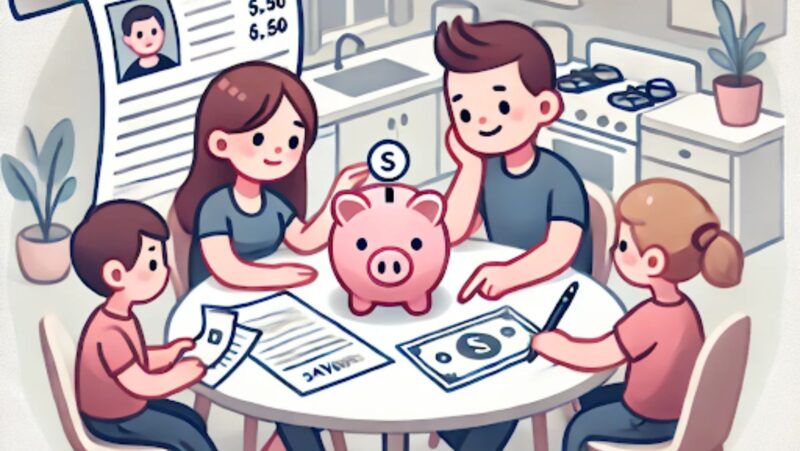
Life can throw financial surprises anytime, leaving people struggling to cover urgent costs. A quick cash advance can be a lifesaver when dealing with sudden expenses, from medical bills to car repairs. However, making the wrong financial decision could lead to more debt.
This article explores responsible ways to access quick cash options, keep loan payments manageable in your bank account, and avoid financial traps. Instead of relying on high-interest loans, there are smarter ways to stay afloat during financial difficulties. The right approach can help individuals meet immediate needs without harming long-term financial stability.
Understanding Sudden Cash Shortages and Their Impact
An unexpected expense can disrupt even the most well-planned budget. Common situations include emergency home repairs, bills, or sudden job loss. Statistics show that nearly 60% of Americans have less than $1,000 in savings, making financial challenges a serious concern. Relying on credit for such expenses can lead to a cycle of debt. Late payments may also affect credit scores, making future borrowing more expensive. You can always request a credit report to ensure everything’s on track.
A structured approach is necessary to handle these situations. Exploring different financial solutions, such as an instant cash advance or assistance from community centers, can provide relief without pushing individuals further into financial trouble.
7 Smart Ways to Handle Cash Shortages Without Falling into Debt
1. Consider an Instant Cash Advance for Urgent Expenses
An instant cash advance is one of the fastest ways to access money during a crisis. Some personal finance services offer direct deposit options, providing funds within 24 hours. While this is a short-term fix, it prevents the need to take out a high-interest debt consolidation loan, which could add more financial stress.
It’s important to use a cash advance wisely. Instead of spending on non-essentials, it should only cover necessary costs such as medical or emergency car repairs. Services like payday advances may come with fees, so it’s essential to compare options.
2. Tap into Your Savings Account
Building an emergency fund is one of the best strategies for handling financial challenges. According to experts, individuals should aim for three to six months’ expenses in a separate savings account. Those who lack emergency savings may consider cutting down on non-essential spending to contribute to their financial cushion.
Having multiple savings accounts for different goals can help with financial planning. This beginner’s guide to banking and finance management explains how different banking strategies can improve financial stability.
3. Sell Unused Items for Quick Cash
Selling personal items can be a simple way to get extra money without borrowing. Some valuable things to consider include:
- Musical instruments: Many people own old instruments they no longer use. Selling them online can generate extra cash.
- Electronics: Old smartphones, tablets, or laptops can be sold for a good sum.
- Clothing and accessories: Gently used designer items can be sold through resale apps.
A yard sale or online marketplace listing can turn unwanted items into much-needed funds.
4. Take Up a Side Gig
For those facing recurring financial challenges, finding additional income sources can help. Some quick side gigs include:
- Pet sitting: Many pet owners need sitters when they travel, offering a steady income stream.
- Freelancing: Skills like writing, graphic design, or video editing can bring in extra earnings.
- Delivery services: Working with food or package delivery platforms can provide fast pay.
A second income stream may prevent the need for loans and help cover monthly costs.
5. Request a Payment Plan for Bills
Some creditors allow timely payments to be spread out instead of requiring a lump sum upfront. This option can apply to medical, utility bills, and even student loans.
For example, hospitals often have financial assistance programs that allow patients to repay their balances in smaller installments. Calling the billing department and requesting payment flexibility can make managing expenses easier.
6. Consider a No-Interest Loan from a Credit Union
A credit union may offer small personal loans with lower interest rates than traditional banks. Some even provide no credit check loans for members facing emergencies. These options are more affordable than payday loans and can be repaid over time.
To learn more about the benefits of using different banking tools, check out this article on why you should have multiple savings accounts.
7. Avoid Predatory Lenders and High-Interest Loans
Some lenders target individuals in desperate situations, offering quick cash solutions with extremely high interest rates. Payday loans, for example, can have APRs over 400%, making them dangerous for those struggling financially.
Instead of taking these risky options, it’s better to:
- Contact financial assistance for debt counseling.
- Look for social security assistance if eligible.
- Use budgeting apps to manage cash flow and track expenses.
This guide on improving your quality of life through financial planning shares more strategies for making smart financial choices.
Alternative Ways to Get Emergency Cash Solutions Quickly
|
Solution |
Expected Timeframe |
Pros |
Cons |
|
Quick cash advance |
24 hours |
Fast access to cash |
May have fees |
|
Selling items |
Same day |
No debt involved |
May not generate enough |
|
Side gig |
Within a week |
Flexible income source |
Requires effort |
|
Payment plan |
Varies |
Avoids delayed payments |
Depends on creditor approval |
|
Credit union single loan |
1-3 days |
Lower interest rates |
Requires membership |
Final Words
Handling a sudden cash shortage does not have to lead to debt. With smart planning, responsible borrowing, and alternative income sources, it is possible to manage financial difficulties without long-term harm. Staying prepared with an emergency fund, using instant financial help wisely, and avoiding predatory loans can make a big difference when making more money in minutes.
FAQs
1. How can I build an emergency fund while paying monthly bills?
Start by setting aside even a small amount from each paycheck. Consider using an automatic transfer to a savings account. Reducing non-essential spending and selling unused items can also help grow your fund.
2. Are no credit check loans suitable for handling emergency expenses?
No-credit-check loans can help in urgent situations but often have high fees. Exploring options like credit unions, community centers, or payment plans is safer and avoids additional financial stress.
3. What is the best bet for getting extra money without borrowing?
Selling items, taking up a side gig, or requesting a payment extension from creditors are great ways to get cash without adding debt. Using a personal finance app can also help manage expenses more efficiently.





